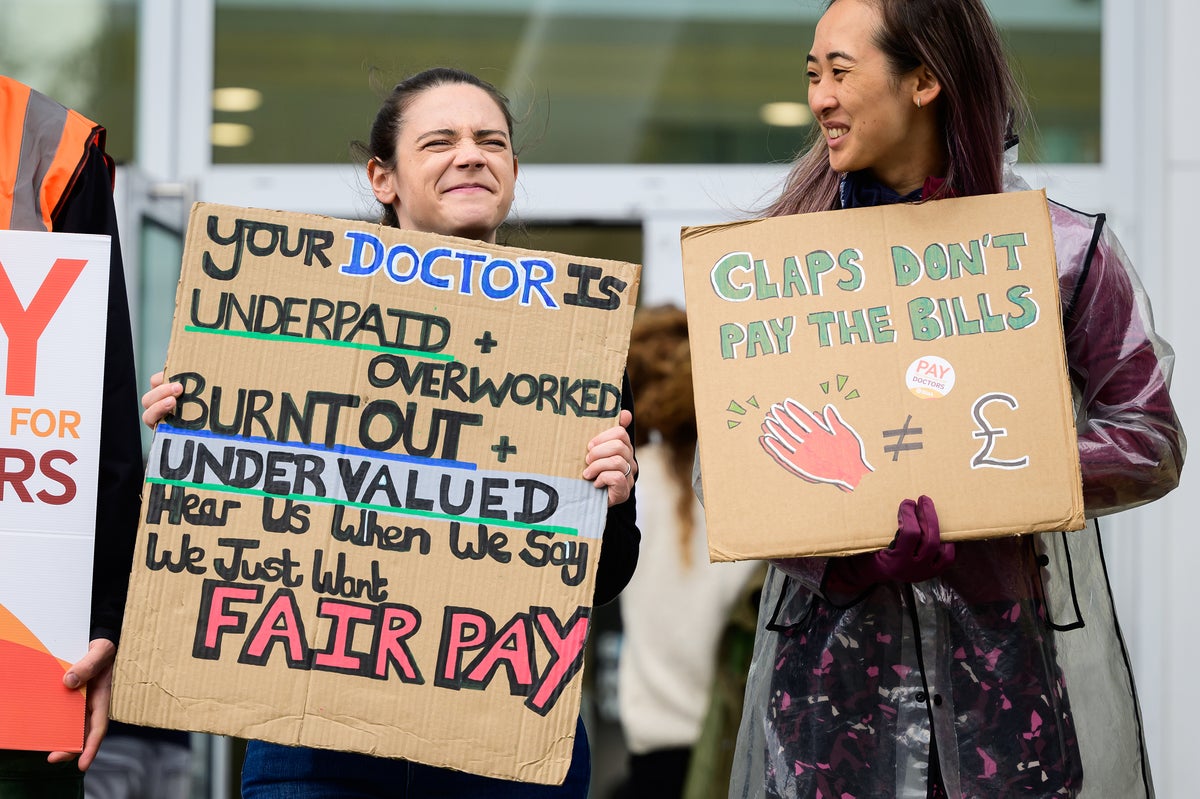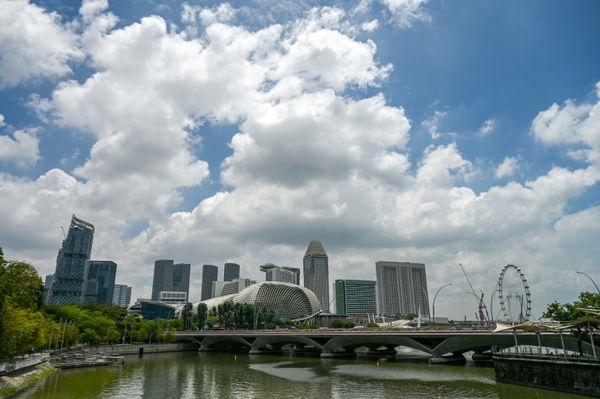
Medics have been accused of “ripping off” the NHS after a surgeon was paid nearly £8,000 to cover striking colleagues.
Multiple hospitals said they had shelled out more than £3,000 for a strike shift as NHS chiefs were left with no choice but to pay “over the odds” to protect patients.
The disclosure comes as junior doctors and consultants launch their longest period of combined industrial action on Monday, walking out for three days in a long-running dispute over pay.
Both sets of staff took joint action earlier this month for the first time in the history of the NHS.
Since the strikes began, the cumulative total of acute inpatient and outpatient appointments having to be rescheduled has exceeded a million.
The industrial action earlier this month led to almost 130,000 inpatient and outpatient appointments being rescheduled.
According to figures obtained by The Times under freedom of information laws, the Walton Centre, a neurology unit in Liverpool, paid £7,853 to cover a neurosurgery shift of unspecified length.
A spokesperson for the trust told The Independent that the figure quoted in The Times’ article was the total cost for the four-day strike period, meaning the doctor was paid £1,963 per day.
In July, East Kent Hospitals University NHS Foundation Trust paid £6,247 for a 13-hour general surgery shift.
A source close to Steve Barclay, the health secretary, told The Times that doctors who claim to “love” the health service should not be “ripping off” the NHS.
File photo: Surgeons work on a patient— (Getty Images)
During the latest strike, doctors and consultants, who get paid more for covering their colleagues on strike will again deliver “Christmas Day” levels of staffing from 7am on Monday until the same time on Thursday in industrial action that will cause more disruption across the health service.
Strikes in the NHS have been ongoing since the end of last year and there are no signs of an end to the stalemate in the dispute between doctors and the government.
Ministers have urged the British Medical Association (BMA) to call off the walkouts following what they said was a “fair and reasonable” pay rise.
They were offered a 6 per cent rise and a £1,250 consolidation payment in July but rejected this, saying the figure failed to address years of below-inflation salary deals.
The BMA, whose members are striking, said doctors were “fed up” with being labelled the problem.
The BMA said its survey showed that the public blames the government for the now 7.7 million-long NHS waiting list.
The doctors’ union said its poll 1,765 adults showed that government attempts to blame medics for “cripplingly long” waiting lists have not convinced the public.
More than two in five respondents blamed the government for the increase in waiting lists for elective treatment, which has risen from 2.6 million in 2010 to almost 7.7 million.
Junior doctors and consultants on a picket line last month (Stefan Rousseau/PA)— (PA Wire)
This is almost three times the number who blame striking doctors (15 per cent), the BMA said.
More than a fifth of Conservative voters blamed the government, which the BMA said was “especially concerning” for the party holding its annual conference in Manchester.
Jeremy Hunt, the chancellor, will deliver a speech at the gathering later on Monday in which he is expected to talk about reforms to the public sector.
Mr Hunt, who previously served as the health secretary, waded into the strikes row in an interview with the BBC earlier, saying the £7,853 paid to the consultant was an example of “inefficiencies” in the NHS.
“Doctors are choosing to strike and what I would say to them is: ‘We’ve offered you an above inflation award that wasn’t decided by the government, it was decided by an independent pay review body,” he told Radio 4’s Today programme.
"But fundamentally, those numbers are an example of the inefficiencies in the way the NHS is run. Because even outside strikes, we pay locum doctors enormous sums of money”.
Additional reporting by agencies
This article was amended on the day of publication. It originally stated that a trust had paid a doctor £7,900 for one shift, but the trust clarified that this sum was the total for the four-day strike period.







